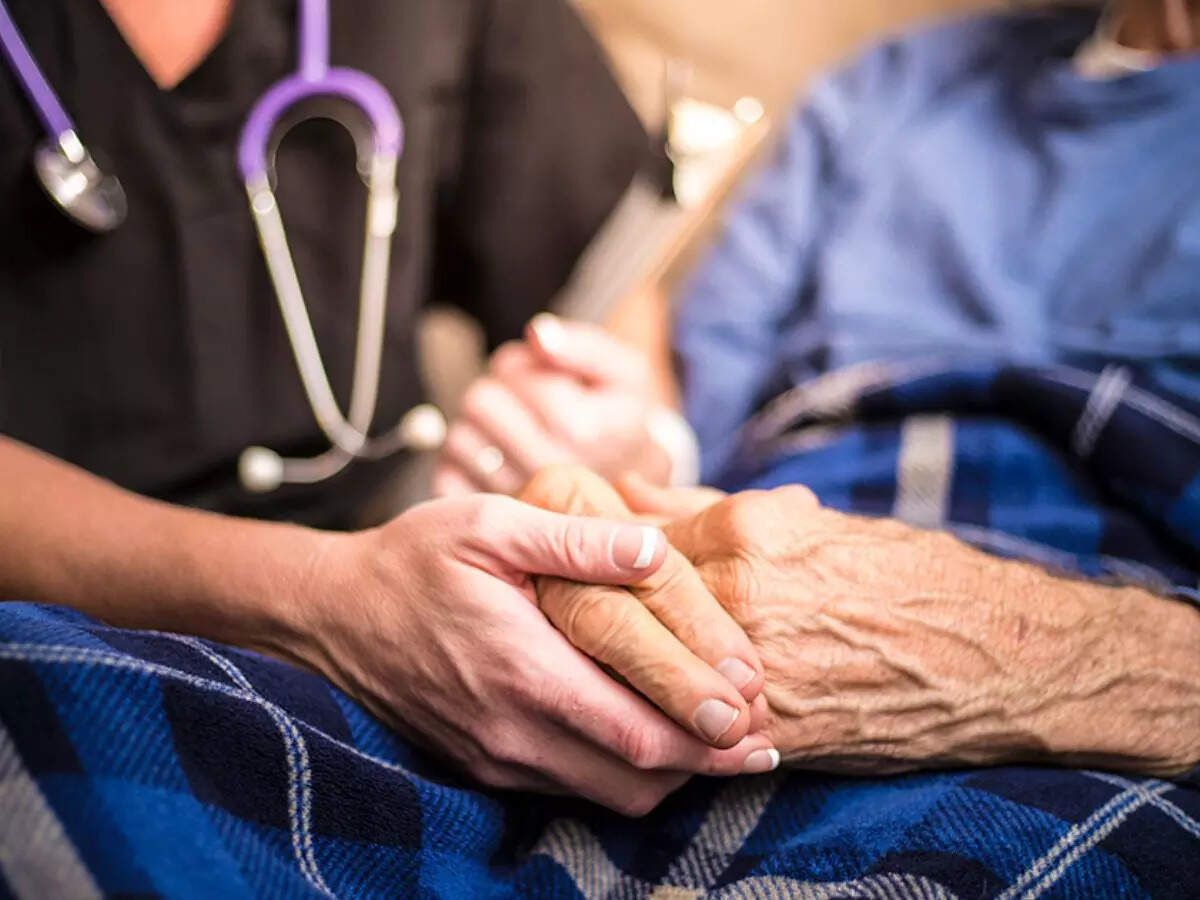- Industry
- 3 min read
The need to address hospice care, for cancer in India
In India, there also exists a significant concern amongst individuals about societal perceptions when considering hospice care for a family member. The fear of judgment often deters families from opting for hospice care, highlighting the need for greater awareness and understanding to destigmatize this crucial aspect of end-of-life support.

The period towards the later stage of cancer is different for every person; the signs and symptoms people have may vary as their illness continues, and each person has unique needs for information and support. Patients receiving hospice care, have reported a higher quality of life globally; many hospice care services offer medical care, counselling, and respite care.
Not just that, many hospice care services also help families of the patient with medical, psychological, social, and spiritual information around last stage care and dying. Globally, hospice programs are the most comprehensive and coordinated services that have been helping cancer patients worldwide.
However, hospice care in India remains disproportionately low compared to global standards. There is a lot of pain attached to the admission of a patient to terminal care. Doctors don’t want to admit defeat. Families don’t want to give up hope. All these lead to unrealistic expectations and uptake of futile treatments among patients. The patient is perhaps the first to wish they could be left in peace.
In India, there also exists a significant concern amongst individuals about societal perceptions when considering hospice care for a family member. The fear of judgment often deters families from opting for hospice care, highlighting the need for greater awareness and understanding to destigmatise this crucial aspect of end-of-life support.
Thus, cancer patients frequently express concerns primarily related to physical pain, often overlooking their psychological, social, or spiritual needs. This trend may stem from patients' limited awareness of their diagnosis and prognosis. And because of oncologists’ and the families’ unwillingness to disclose the prognosis, and patient’s focus only on pain due to their lack of insight, hospice care still remains under-utilised in this country.
The pursuit of advanced care needs and pursuit of futile treatments have even contributed to families experiencing job losses, heightened financial debts, and escalating care expenses in case of cancer. Most out-of-pocket expenses are on futile investigations, treatment and expensive diagnostics. Unfortunately, these challenges are often concealed, as families are reluctant to openly discuss their pressing needs and circumstances. Research is thus needed to identify the best ways to help guide physician–patient and physician–family communication and the integration of hospice care givers.
Even WHO’s Global Report categorises India as lacking integrated hospice care. Lack of prioritisation of hospice care at the governmental level hampers adequate policy responses, resulting in restrictive regulation.
With the numbers of cancer cases growing over the years, the need to improve the quality of life has gained significant attention. India with its growing population carries a huge burden of patients suffering cancer; many of whom have exhausted all meaningful treatment options.
Taking a patient to a hospice is not an admission of failure. It is addressing the reality. Every person, rich or poor or destitute needs to die with dignity & care. Low-income families should not shy away from providing a better quality of life to their member, in his/ her last days. They should access the free hospice support from government hospitals or non-profits. The affluent on the other hand, should not shy away from accessing compassionate home-based care, rather than seeing death as the failure.
An end-to-end treatment includes quality health services, from health prevention to treatment, rehabilitation and hospice care. There should be exclusive budget allocation for hospice care and states should open more hospice care centres. Taking a patient to a hospice is not an admission of failure., it is addressing the reality.
Jyotsna Govil, Chairperson of Indian Cancer Society, Delhi Branch
(DISCLAIMER: The views expressed are solely of the author and ETHealthworld.com does not necessarily subscribe to it. ETHealthworld.com shall not be responsible for any damage caused to any person/organisation directly or indirectly)



COMMENTS
All Comments
By commenting, you agree to the Prohibited Content Policy
PostBy commenting, you agree to the Prohibited Content Policy
PostFind this Comment Offensive?
Choose your reason below and click on the submit button. This will alert our moderators to take actions